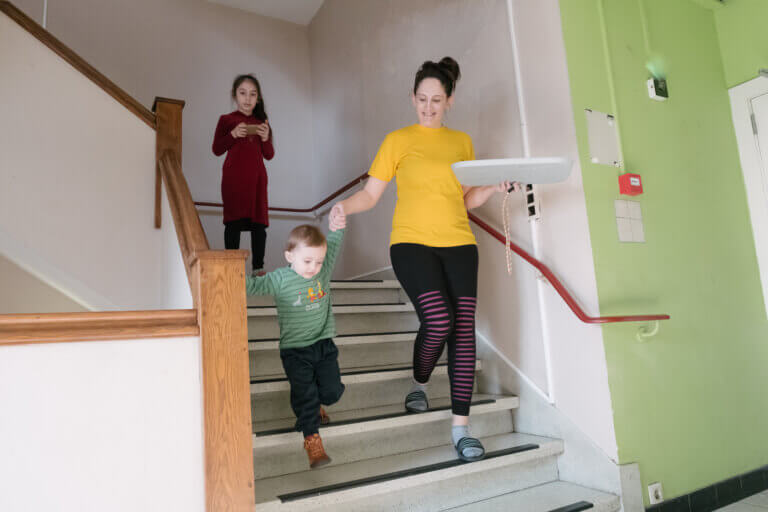
Scherpenheuvel Reception Center
- Asylum & Migration
- Asylum-seekers
- Single asylum seekers and families
Reception center for asylum seekers in Scherpenheuvel.
Read moreCaritas International by region
Caritas International in Belgium
Asylum & Migration Asylum-seekers Single asylum seekers and families
21 different nationalities are currently represented at the Caritas center for asylum seekers at Scherpenheuvel, where people from all over the world – from Afghanistan to Guinea – await decisions in their asylum cases. At the moment, 132 people are living there, half of them children. For Iraqi Haedr Al-Rubaye and his family, the last day at the center has arrived. They can “finally leave.”
“We have been in Belgium for the last year and nine months, and last week we received a positive decision,” says Haedr happily. He and his family have been recognized as refugees and can finally dream of a stable life in Belgium. Haedr, his wife Selma and their two sons, Yazen and Saif, are leaving tomorrow for a local reception initiative (ILA) in Anvers. “My wife’s family has been in Antwerp for the last few days,” Haedr continues. “We fled together. My mother and father stayed behind in Iraq. I’m able to call them sometimes.”
“Our youngest son, Yazen, was born here in the large hospital in Diest,” Haedr adds. Yazen, a mischievous child who can’t sit still in his father’s lap for longer than five minutes, is now a year old. Mother Selma hurries to close the door so the baby wouldn’t get lost down the hallway of the center. Correcting himself as he ran after the baby, Haedr added, “He was born in the smaller hospital in Diest. Everything went well.”
“I took an integration class and have been learning Dutch, but I hope to learn even more Dutch in the future to be able to find work more easily,” explains Haedr. “In Iraq, I worked as a police officer for 10 years. Today, I work two days a week picking apples. I’m happy to have work, but two days a week isn’t enough. That’s why I want to keep studying the language.”
Haedr and his family were supported at the reception center by a multidisciplinary Caritas team that accompanied them both throughout the asylum-seeking process and also throughout all aspects of their life at the center: registering their children in school, helping to reconstruct their social lives, skills training, employment, searching for housing, etc. Psycho-social support is also provided to residents if necessary.